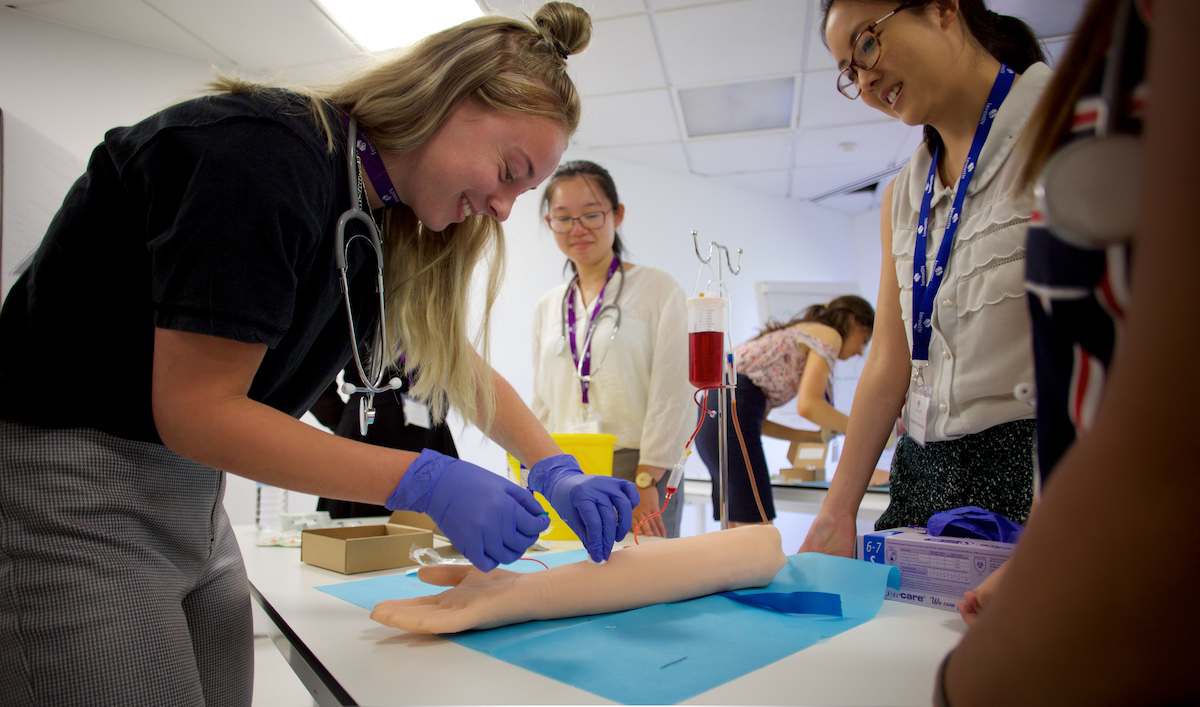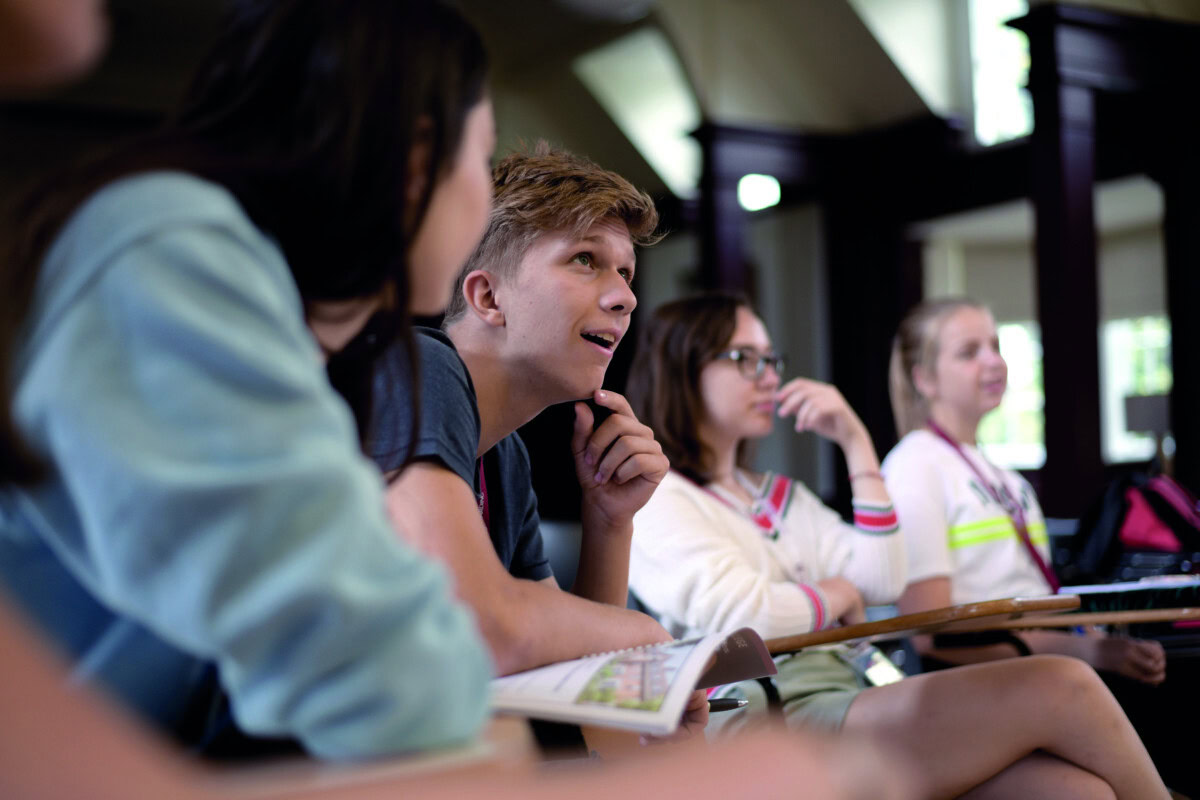When Is the Best Time for Students to Look for Work Experience?
Work experience during your school years can be a game-changer, boosting your skills, confidence, and even future opportunities. Research shows that each additional work experience placement in secondary school is linked to a 3.4% higher average wage in your 20s. Nearly half of students who did work experience at ages 16–18 said it improved their problem-solving and communication skills.
Having identified the benefits, the question becomes: when should you start looking for work experience?
Why Early Work Experience Matters
Gaining work experience as a teenager is more than a résumé booster: it’s a chance to discover your interests and build real-world skills. A good placement provides an insider view of a potential career, which might cement your passion for a field or dissuade you from it. And it’s much better to find that out sooner rather than later.
Beyond career insight, work experience helps you develop important skills like teamwork, communication, and problem-solving. In fact, one UK survey found that students who completed work experience in school gained confidence and self-belief – 55% of those aged 16–18 felt more confident afterward. The long-term payoff is significant too: having done work placements in school correlates with higher future earnings and lower chances of ending up not in education, employment or training (NEET).
Key takeaway: Starting work experience early (during high school years) gives you a head start on building skills and shaping your career ambitions. It signals to universities and employers that you’ve gone beyond academics to explore the working world.
How Early Should Students Start Looking?
There’s no need to wait until you’re an adult to step into the workplace. Many students can begin work experience in their mid-teens. In the UK, for example, schools often arrange a one- or two-week placement around Year 11 (age 15–16), and sometimes another in Year 13 (age 17–18) during the summer term. Child development experts agree that around 16 is a good time to start assessing work opportunities. Any experience can inform important decisions like what subjects to study or which career to pursue.
That said, earlier is possible in some cases. Some ambitious students start with lighter experiences (such as volunteering or family business work) at 14 or 15 to build confidence. Formal placements might be easier to secure once you’re 16+, due to labour laws and company policies, but don’t be afraid to seek informal opportunities earlier if you feel ready. Career guidance frameworks recommend at least two workplace experiences by age 18 for every student. This could mean doing one placement around Year 11 and another in Year 12 or 13. By starting in your mid-teens, you leave enough time to complete multiple experiences and reap the full benefits before graduating.
The Best Times of Year to Gain Experience
Summer holidays are widely considered the prime time for student work experience. During the long summer break, you’re free of school commitments and can dedicate a week (or even several weeks) to an internship, volunteering, or a part-time job. Many industries offer summer programmes for high schoolers precisely because students are available. For example, some companies and charities run structured placements in July or August targeting 16–18-year-olds. If you’ve just finished major exams (GCSEs or A-levels in the UK), that post-exam summer is an ideal window to dive into the working world.
While summer is optimal for a deep-dive experience, don’t overlook other school breaks. Winter or spring vacations can be opportunities for shorter stints, like a few days of work shadowing or a mini-internship. Even a half-term break (one week off school) might be enough time to arrange a work shadowing day or volunteer project. The key is to align with times when you’re free from classes so you can focus on the experience. Weekends during term time are another option: if a full week is not feasible, you can seek out weekend opportunities or insight days. Many employers understand students’ schedules and may offer flexible, short engagements on a Saturday or after school. Structured options such as InvestIN’s Weekend Programmes, held in London and online, are also ideal for busy students who want an immersive career experience without missing lessons.

The Young Engineer Weekend
Step into the world of engineering with this weekend programme designed for students aged 15–18.
Planning Ahead: When to Start Applying
Securing a great work experience placement often requires advance planning. You don’t want to start looking the week before your holiday begins – the best opportunities are competitive and tend to be snapped up early. A good rule of thumb is to begin your search a few months before you hope to do the work experience. If you’re aiming for summer, start looking in the winter. Career advisors recommend starting to research and inquire about summer positions as early as January or February. Many formal internship programs for students open their applications in late winter or early spring. By early spring (March–April), you should be sending out applications or requests for placements, since a lot of deadlines for summer programs land around this time.
Balancing Term-Time Commitments and Work Experience
Another consideration for timing is how to fit work experience around your studies. The “best” time should ultimately not jeopardise your schoolwork. During crucial academic periods (exam season, for instance), you might pause your job hunt to focus on grades. During regular term time, you can still gain experience but on a smaller scale. For example, a part-time job or volunteering on weekends can teach you plenty about responsibility and working with others without conflicting with classes. Even a few hours a week as a volunteer (tutoring, working at an animal shelter, assisting at a local business) can count as valuable experience.
The key is maintaining balance: ensure the hours aren’t too demanding so your schoolwork doesn’t suffer.
Making the Most of Opportunities Year-Round
Ultimately, the best time to look for work experience is as soon as you feel ready – and whenever an opportunity arises. There’s no single “perfect” moment that suits everyone. Instead, think in terms of windows of opportunity. Early in the school year (autumn) is a great time to plan for the year ahead. Many application cycles for summer programs start in the autumn or winter, so it’s wise to do your research in September and October. If you find an interesting opportunity that takes place during a mid-term break or even a virtual experience you can do after school, seize it.
Volunteering
Don’t forget about volunteering and personal projects as flexible year-round options too. If a formal internship isn’t available yet, create your own experience. Volunteering, for example, can happen anytime – during school terms in small weekly doses or in a block over summer. This could mean helping at a community event, contributing to a charity, or even starting a passion project (like building a simple app if you’re into coding, or launching a small business initiative). Such experiences are valuable and can be scheduled whenever you have time. The National Careers Service emphasizes that work experience can be “flexible” – it might be a traditional placement, or something you arrange yourself like helping with a family business or job shadowing a friend of the family.
InvestIN Weekend Programmes
Keep an eye out for career insight events or short programs that can fit into your schedule. InvestIN, for instance, offers immersive weekend programmes with two intakes during the school year (one in November and one in March). These one-day Sunday programmes let students experience a profession first-hand without missing any school. Such programs can be ideal if you want to get a taste of a career during term time. They’re also accessible through live online participation (UK time zone), meaning you can join from anywhere. By attending an insight day or weekend experience, you can then decide if you’d like to pursue a longer placement in that field during your next holiday.

The Young Doctor Weekend
Discover what it’s like to be a doctor on this immersive weekend for students aged 15–18.
Conclusion
In summary, the best time for students to look for work experience is as early as possible in their high school journey, and whenever school commitments are lowest. Many teens will get their first taste around ages 15–16, often during a summer break or right after exams, which is an excellent time to dive in. Summers are ideal for substantial experiences, but other windows can also be used to your advantage. Every new experience will build your confidence and skills, making you better prepared for college and careers.
Talk to your school’s career adviser, let your family and teachers know you’re looking for experience, and mark those key dates on your calendar for applications. And remember, work experience comes in many forms: from traditional internships to creative personal projects. Even short forays into the working world can have a big impact on your future direction.
Get Work Experience with Dukes Plus
To get a head start this year, consider joining a structured career program to kickstart your experience. InvestIN’s Weekend Programmes offer students aged 15–18 a one-day immersive glimpse into fields like medicine, law, engineering, and more – perfect for making productive use of an autumn weekend. Whether in London or attending online, you can gain real insights and inspiration in just a day. Opportunities like these show that there’s no time like the present to begin exploring the world of work.
Start early, keep an open mind, and you’ll be well on your way to a bright and informed future career.

Weekend Programmes
Planning for your career? Our immersive weekend programmes give students an inspiring, hands-on insight into a range of fascinating professions.


